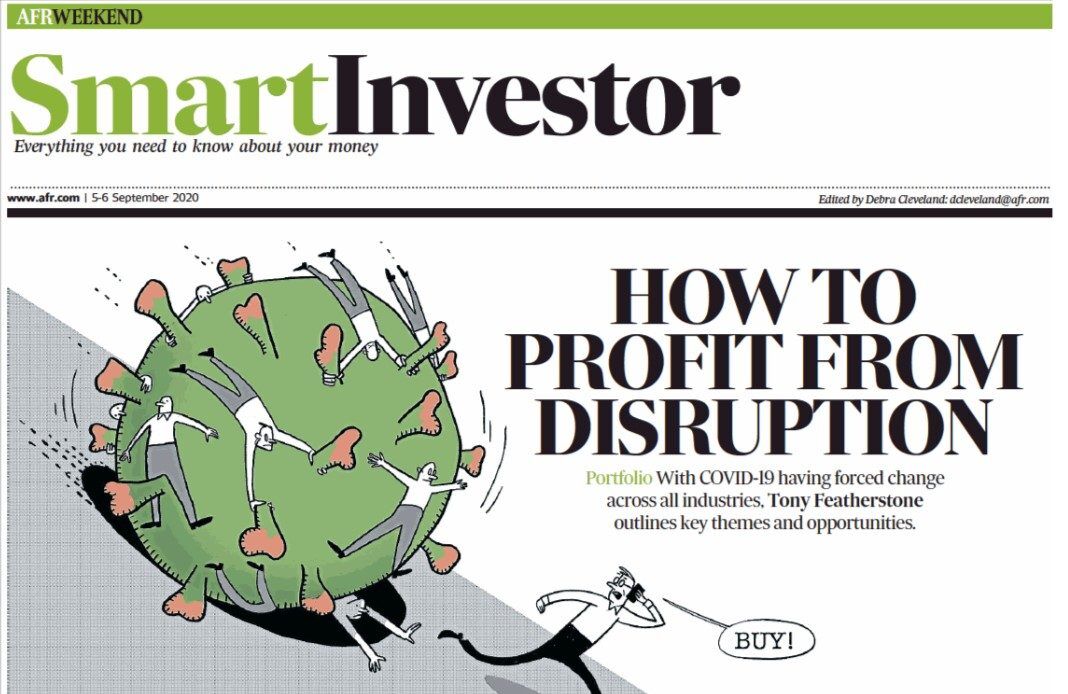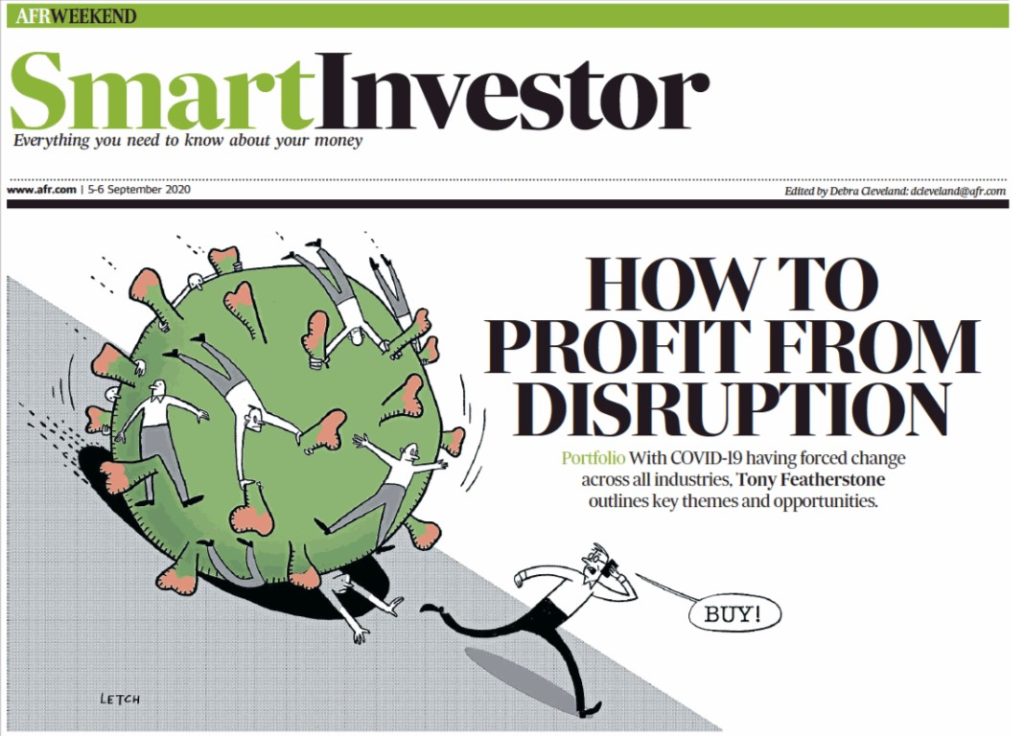
The below is an extract from Tony Featherstone’s article ‘How to profit from global disruption’ which was originally published to the Australian Financial Review on 05/09/2020. For the full article, please click here.
COVID-19 is disrupting disruption. Megatrends meant to take years are being squeezed into months, creating windfalls for early investors and crushing laggards.
E-commerce (as a proportion of retail sales) could more than double this year in the United States. The previous doubling took seven years. In April, Microsoft said COVID-19 had condensed two years of digital transformation into two months – a trend surely more pronounced now.

This digital tsunami was always coming, but nobody expected a virus to trigger seismic change. Across industries, companies are digitising this year at light speed.
“We are witnessing one of the great industrial revolutions,” says Alex Pollak, chief investment officer of Loftus Peak. “Disruption today is no less profound than the invention of the steam engine or electrification. In 20 years, we will see this period as a defining moment in history.”
The mistake, says Pollak, is believing gains are over. “Trends such as growth in online payments and cloud computing are just starting. Whatever one thinks Amazon.com is worth today, it will be worth a lot more in a decade due to its cloud-computing business (Amazon Web Services). Investors need significant, long-term portfolio exposure to this disruption trend.”
The tech-stock rally since the March low in global equities has for now justified bullish views on disruption. Afterpay, Wisetech Global and other tech stars lit up the latest profit-reporting season with results that beat expectation. Their share prices soared.
Amid the COVID-19 fog, global tech giants look like a beacon of safety with their strong balance sheets, recurring income, fat profit margins and cash flows. Tech outperformed other sectors a year after the 2003 SARS crisis and is doing so again in this pandemic.
Pollak believes the 5G telecommunications rollout will unleash the next wave of disruptors, just as 4G spawned Uber and Snapchat. The Loftus Peak Global Disruption Fund holds US wireless-technology giant Qualcomm as a play on 5G and connected devices in the “Internet of things”.
Programmatic TV advertising (personalised ads on streaming services) is another favoured trend. Loftus owns Roku, a leading US maker of smart TVs that is disrupting advertising by providing free ad-supported channels on demand, tailored to user preferences and location.
“Every industry is being disrupted,” says Pollak. “Management teams know what’s coming, and the risks of not moving quickly enough. But most companies don’t have the right management or remuneration structures to respond, or can’t put a cost of capital on developing a disruptive technology. That creates opportunities for new rivals.”
Portfolio rethink
If Pollak is right, retail investors need to rethink portfolio construction. Considerations include: higher global equities exposure; a larger sector allocation to technology, including funds that invest in disruptive technologies and businesses; viewing disruption as a core portfolio theme; and avoiding index funds that do not include emerging disruption stars.
An immediate task is avoiding companies that will be disruption roadkill. “Investors face catastrophic wealth destruction if their portfolio is full of incumbent companies that will be disrupted or cannot respond fast enough to change because of legacy assets and business models,” says Pollak. “COVID-19 is magnifying that risk by speeding everything up.”
Nobody doubts technology’s power to drive disruptive innovation that reshapes business models and industries. But the concept is hardly new: Seek, for example, has disrupted job advertising in Australia since the late 1990s and continues to make inroads.
Share this Post

